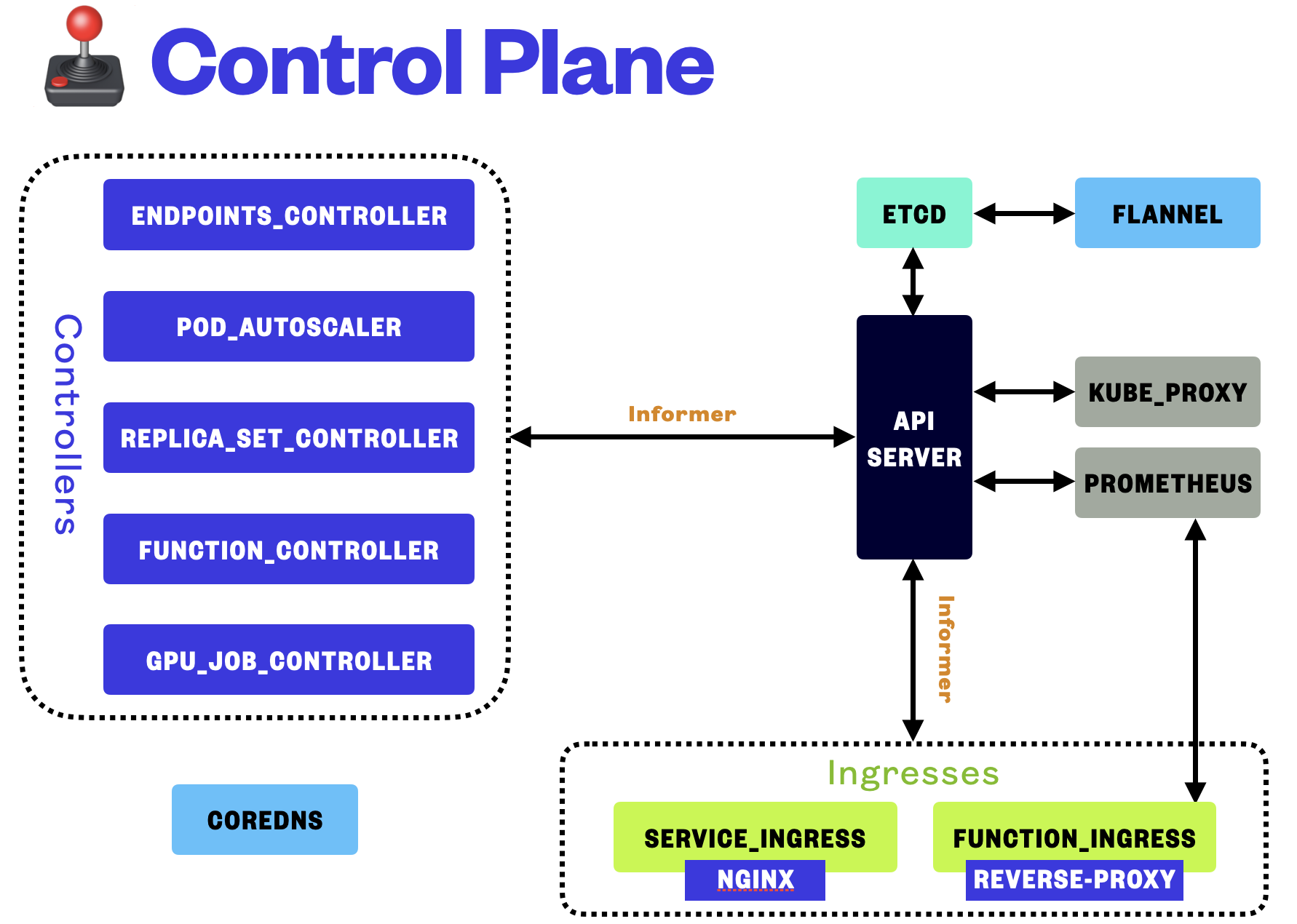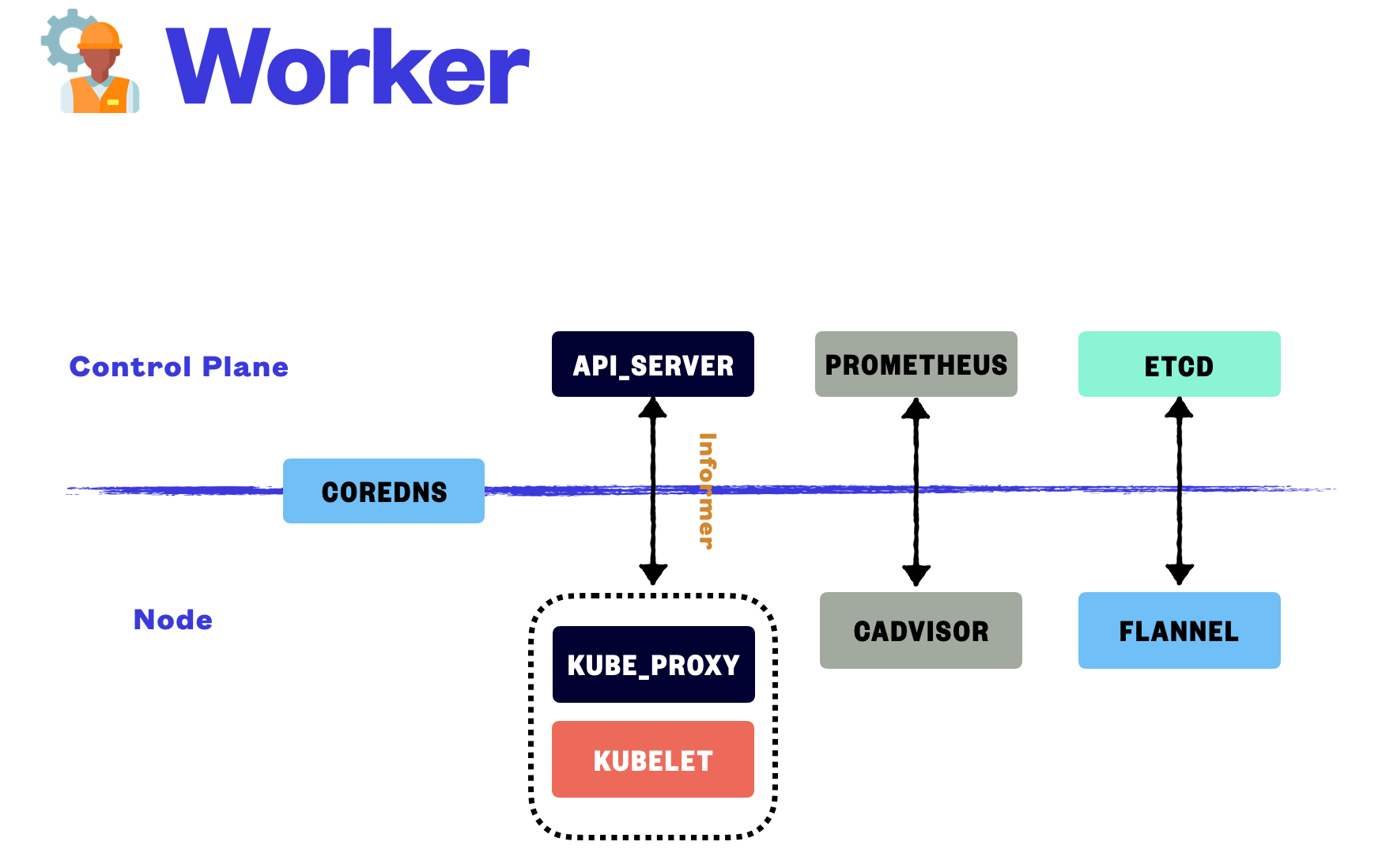A simple dockerized application management system like Kubernetes, written in Rust, plus a simple FaaS implementation.
Course Project for SJTU-SE3356, 2022.
- Nodes
- Registration and status update
- Label modification
- Pods
- Multiple containers inside single pod
- Shared volumes
- Resource limits
- Round-robin scheduling over multiple nodes with node selector support
- Query logs and attach shell
- Services
- Round-robin load balancing
- Overlay network over multiple nodes
- ReplicaSets
- Reconciliation to desired replicas count
- Horizontal Pod Autoscalers
- Horizontal autoscaling based on CPU/Memory metrics
- Scale policy and behavior
- Ingresses
- Connect to services via domain name
- Routing based on URL path
- GPU Jobs
- Submit CUDA jobs to HPC server and return results
- Fault Tolerance
- Pod containers auto recovery
- Re-synchronization after API server restart
- Serverless (FaaS)
- Scale-to-zero and horizontal autoscaling
- Function workflow with conditional branch
- rKubectl
- Create, get, describe, patch and delete
- Shell auto-completion
Refer to Document and Presentation for further information.
Use ./scripts/ARCH/master/up.sh to deploy the control plane and ./scripts/ARCH/node/up.sh to deploy a node. Only ARM architecture is supported and tested currently.
P.S. You may want to build the dependencies(docker images, binaries) and set up a local registry first. Refer to the script for further information.
Manual deployment works on both x86 and Arm architecture, and allows you to test only part of the components and features.
First of all, build all components using cargo build, and deploy a etcd server, then start API Server using cargo run -p api_server. You can find help on rKubectl using rkubectl help. Configuration file templates and example resource definitions are available under examples directory.
Now, deploy the components needed based on the following rules:
- For actions related to pods, Scheduler and rKubelet are needed
- For actions related to services, you'll need Endpoints Controller, rKube-proxy
- For ReplicaSets to work, ReplicaSet Controller is needed
- To operate a cluster with multiple nodes, Flannel is needed
- To support Pod autoscaling (including function autoscaling), you need to run cAdvisor on worker node and Prometheus on control plane node, then start Pod Autoscaler
- Ingress Controller is needed for Ingresses to work
- GPU Job Controller is needed to run GPU jobs
- To run functions and function workflows, you need to deploy Function Controller and Serverless Router
- You'll need extra configuration on local DNS for domain-based requests to work (Ingress and Serverless), refer to configuration templates and automation scripts for details
This project is licensed under the GPL license.

